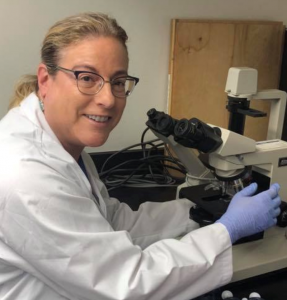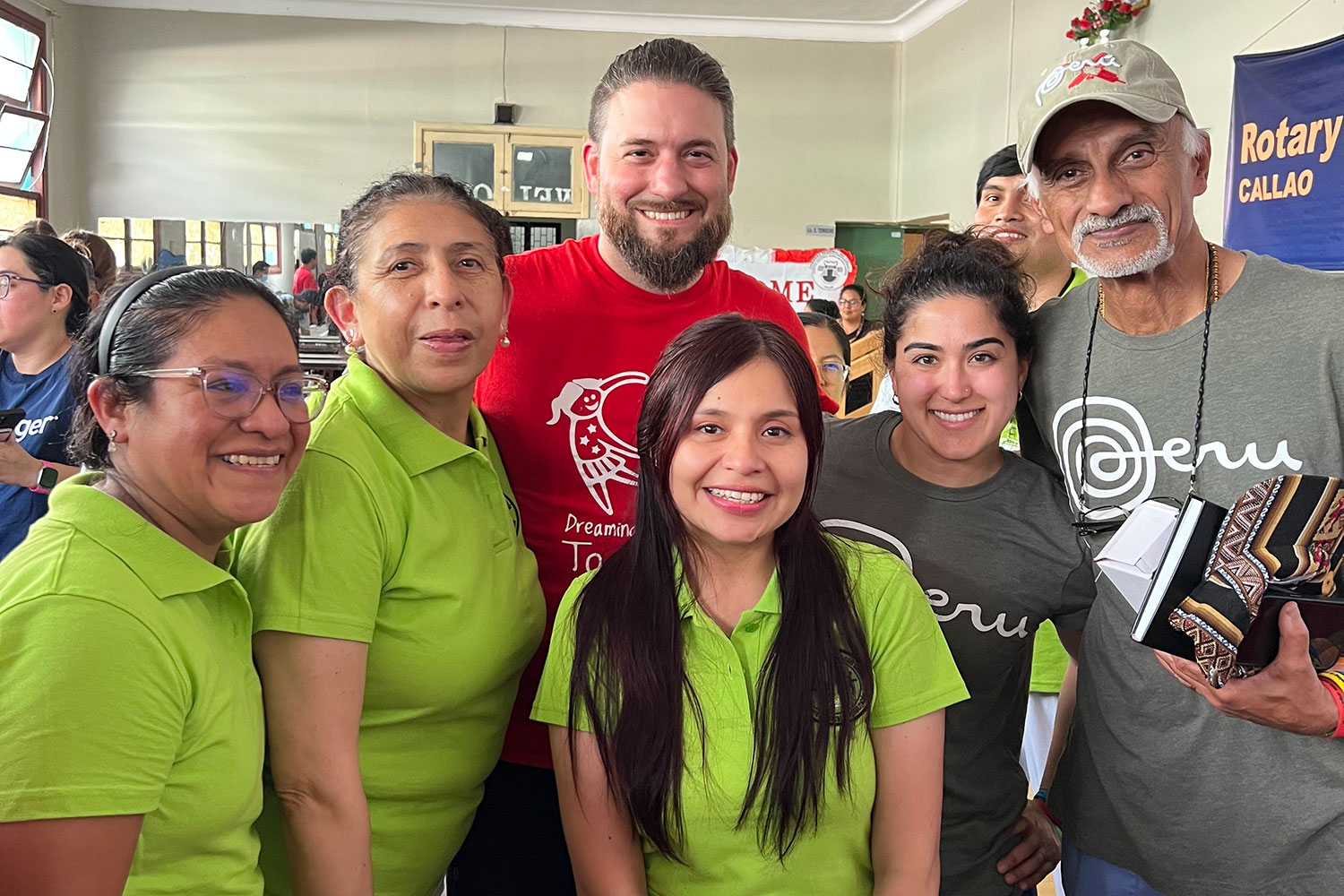If you told Sharon G. Casavant 16 years ago that she would be receiving a $15,000 seed grant for her nursing research, she probably would not have believed you. At the time, Casavant was the vice president of marketing and resource development for United Way.
Now, after earning her bachelor’s, master’s, and Ph.D. degrees in nursing from UConn, she is an assistant professor at UConn School of Nursing whose research has focused on the effects painful procedures have on preterm infants at the genetic level. She is currently broadening her program of research, investigating how racial stress can be passed from mothers to their preterm infants.
“I was always focused on the community and giving back, when I was working at United Way,” Casavant says. “I decided that I wanted to stop writing about what these organizations were doing and wanted to actually do something.”
Her latest study, “Examining the Effects of Discrimination, Stress, and Neighborhood Vulnerability on Transgenerational Telomere Length among Black/African American Mother-Preterm Infant Dyads,” recently earned a two-year grant from UConn’s Institute for Collaboration on Health, Intervention, and Policy.
“Dr. Casavant’s study will uniquely advance biobehavioral nursing science by expanding knowledge of the biological mechanisms underlying the effects of social determinants of health on transgenerational maternal-infant health in a vulnerable population,” says Associate Dean for Research and Scholarship Xiaomei Cong. “Her work will have a significant impact on biobehavioral research and provide evidence on practice guidelines to promote maternal-infant health outcomes and health equity in this population.”

Casavant developed her hypothesis in 2021, when she reexamined data from her postdoctoral research — funded by a grant from the National Institutes of Health — and discovered that Black and African American infants were born at lower gestational ages, slower growth, and telomere lengths. Think of a telomere like the cap at the end of a shoelace – they live at the end of a chromosome and keep it from adhering to neighboring chromosomes or itself during cell reproduction. As telomeres shorten, which they naturally do over time, they stop reproducing and the cell dies. Therefore, shorter telomere lengths are considered a marker of chronic stress and aging but can be especially problematic if found in infants.
“When it came to neurodevelopment, these infants had statistically significant lower cognition scores, lower receptive and expressive language scores,” Casavant says. “I wanted to find out why.”
When Casavant first became a registered nurse, she worked in a neonatal intensive care unit, which is where she says her interest in pain research began.
Casavant recalls working as a bedside nurse in the NICU and being asked to assist practitioners in the placement of a peripherally inserted central catheter, also known as a PICC line, in an infant. This type of catheter is inserted into the arm, leg, or neck to provide direct IV access to major veins. When adults receive PICC lines, they are sedated or given medication, so they don’t experience any pain.\
“We were getting ready to place this PICC line and I realized there were no medication orders,” Casavant says. Despite raising her concerns, she says the baby she was caring for only received sucrose (the sweet taste is believed to activate opioid receptors in the brain, just like pain medication does) and the PICC line was placed without any sedation or other pain-reducing medications.
“That’s when I decided I needed to go back to school and earn my Ph.D. in research,” she says.
“We’re looking to see whether those three things — perceived discrimination, neighborhood vulnerability, and stress — influence the heritability of stress to [the mothers’] preterm infants, which can be reflected in telomere lengths.” — Sharon Casavant, assistant professor
Luckily, Casavant was a University Scholar while an undergraduate student at UConn and, by the time she had finished her bachelor’s degree, she was only two credits shy of her master’s as well. As a Ph.D. student, she was also selected as a Robert Wood Johnson Foundation Future of Nursing Scholar, which supported her education and provided a stipend with only one caveat: She had to complete her doctorate in three years. Her dissertation examined neonatal rodents, investigating their response to altered serotonin levels via behavior and brain volume after surgery.
“I became interested in how exposure to painful procedures or therapies tips the scale toward dysregulation of the hypothalamic-pituitary-adrenal axis, which controls our reactions to stress,” Casavant says. “It’s unbelievable to me that, until 1986, it was widely accepted that infants, let alone preterm infants, were unable to feel pain. If preterm infants needed surgery, they conducted the surgery without anesthesia. That horrified me.”
Her postdoctoral fellowship is what led her to investigate telomere lengths in preterm infants and later inspired her newest study. With support from UConn InCHIP and in partnership with Connecticut Children’s Medical Center’s neonatologists and staff, Casavant will examine 35 mother-preterm infant pairs. She will gather three points of data: the mothers’ perceived discrimination rates (using the Everyday Discrimination Scale); spatial analysis to determine what resources are available in their neighborhoods; and their stress, using the Stress Overload Scale. That qualitative data, as well as measurements of both the mothers’ and infants’ telomere lengths, will be examined twice: when they are discharged from the NICU and when the infant is between eight and 12 months old.
“We’re looking to see whether those three things — perceived discrimination, neighborhood vulnerability, and stress — influence the heritability of stress to their preterm infants, which can be reflected in telomere lengths,” Casavant says. “Do they start off with much shorter telomere lengths? Do they erode more quickly because of those three factors?”
Casavant says her ultimate goal is to help these infants as they grow, ensuring they have access to more resources than their mothers may have received, such as nutritious food and the Birth to 3 and Head Start early childhood programs, and have healthy coping mechanisms so stress does not impact their own children later on. The development and testing of such interventions will depend on the results of her current study and further research funding.
This study is supported by a faculty seed grant from UConn’s Institute for Collaboration on Health, Intervention, and Policy (InCHIP). Please visit chip.uconn.edu for more information, and visit nursing.uconn.edu to learn more about UConn School of Nursing.



